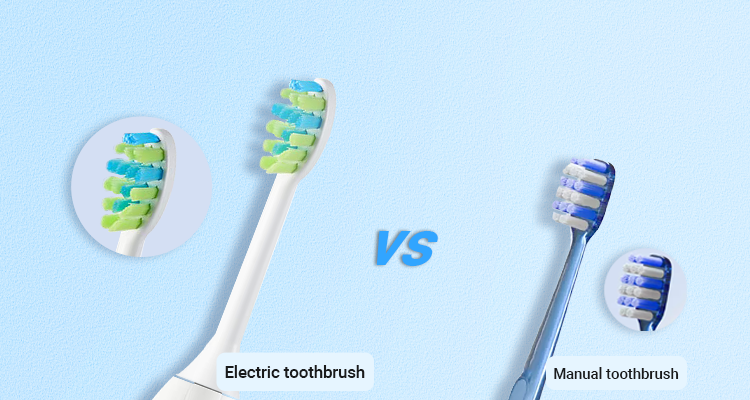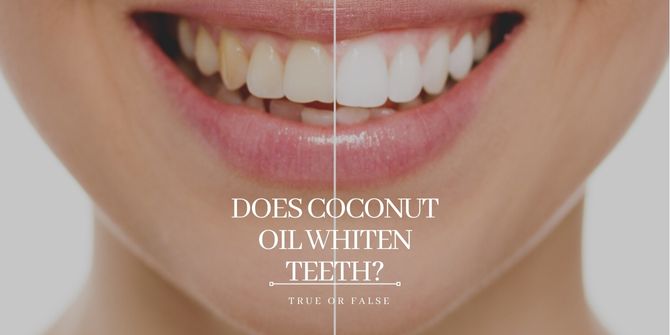In This Article
Are Electric Toothbrushes Better?
Nov 17, 2022

Have you ever wondered if electric toothbrushes are better than manual ones? It's a question that many of us have asked ourselves when considering upgrading our dental care routine. According to a study published in the Journal of Clinical Periodontology, electric toothbrushes were found to be more effective in reducing plaque and gingivitis compared to manual toothbrushes. However, with so many options on the market, it can be overwhelming to choose the right one. In this article, we'll explore the benefits of electric toothbrushes and help you determine if they're worth the investment.
What is an Electric Toothbrush?
An electric toothbrush is a device that uses electrical power to move the brush head, making it easier to clean your teeth. According to the American Dental Association (ADA), it is recommended to brush your teeth for two minutes twice a day, using either an electric or manual toothbrush. Many electric toothbrushes come with built-in timers that alert you when the two-minute mark is reached to ensure you brush for the recommended time.
The ADA also recommends using toothpaste that contains fluoride to help prevent tooth decay. When using an electric toothbrush, it's important not to press too hard when brushing, as this can cause gum irritation or damage to the tooth enamel. It's recommended to use a light grip and let the toothbrush do the work for you. What are the advantages of an electric toothbrush?
Electric toothbrushes are designed to remove plaque. The fast-moving bristles and the oscillating or rotating motion of the brush head allow for a more thorough clean between teeth and along the gum line.
In addition to this, electric toothbrushes also have unique features that can enhance your brushing experience, such as:
- Ergonomic Designs: Many electric toothbrushes have rubber grips or other soft materials that prevent slipping and provide a more comfortable grip.
- Flexible Necks: Some electric toothbrushes have flexible necks, allowing the brush head to reach all areas of your mouth more easily.
- Built-in Timers: Many electric toothbrushes have built-in timers that ensure you brush for the recommended two minutes. This can help you maintain good oral health and prevent gum disease.
- Useful for Orthodontic Appliances: Electric toothbrushes can be particularly useful for people with orthodontic appliances, such as braces, as they can effectively clean around wires and brackets.
Are Electric toothbrushes Better Than Manual Toothbrushes?
Let's take a comprehensive look at how electric toothbrushes compared to manual toothbrushes.
Electric Toothbrushes:
Pros:
- Better plaque removal: Electric toothbrushes have been shown to remove more plaque than manual toothbrushes due to the fast-moving bristles that can clean between teeth and along the gumline more thoroughly.
- Easy to use: Electric toothbrushes require less effort and dexterity than manual toothbrushes, making them a great option for people with limited mobility or disabilities.
- Built-in timers: Many electric toothbrushes have built-in timers that ensure you brush for the recommended two minutes. This can help you maintain good oral health and prevent gum disease.
- Multiple brushing modes: Electric toothbrushes often come with multiple brushing modes, such as a sensitive mode for those with sensitive teeth or gums and a deep cleaning mode for a more thorough clean.
- Pressure sensors: Some electric toothbrushes have pressure sensors that alert you when you're brushing too hard. This can help prevent damage to your teeth and gums.
Cons:
- Cost: Electric toothbrushes are generally more expensive than manual toothbrushes, and replacement brush heads can also be costly.
- Need for charging: Electric toothbrushes require charging or battery replacement, which can be inconvenient when you're traveling.
Manual Toothbrushes:
Pros:
- Inexpensive: Manual toothbrushes are inexpensive and readily available at most stores.
- Easy to travel with Manual toothbrushes are compact and easy to pack in a travel bag, making them a great option for travelers.
- No need for charging: Manual toothbrushes don't require charging or battery replacement, so they're always ready to use.
Cons:
- Less effective plaque removal: Manual toothbrushes may not be as effective at removing plaque as electric toothbrushes.
- Requires more effort: Manual toothbrushes require more effort and dexterity than electric toothbrushes, which may be challenging for some people.
- No built-in timers: Without a built-in timer, it can be easy to under or over-brush, which can lead to oral health problems.
Overall, electric toothbrushes offer advantages such as better plaque removal, multiple brushing modes, and pressure sensors. However, it's important to choose an electric toothbrush that meets your specific needs and to use it correctly for optimal results.
Don't worry; let's take a look at how to choose the right electric toothbrush.
How to Choose an Electric Toothbrush Correctly
When choosing an electric toothbrush, you need to pay attention to the following points:
- Cleans Effectively: An electric toothbrush should be effective at removing plaque and food debris from teeth and gums.
- Multiple brush heads: A good electric toothbrush should be equipped with multiple brush heads to meet different oral needs. For example, some brush heads are designed for deep cleaning, while others are for sensitive teeth.
- Timer: An electric toothbrush with a timer helps ensure you brush for the recommended two minutes. This can help you maintain good oral hygiene and prevent gum disease.
- Pressure Sensor: Electric toothbrushes with a pressure sensor can alert you when you're brushing too hard, which can lead to receding gums and tooth sensitivity.
- Ergonomic Design: A good electric toothbrush should have an ergonomic design, making it comfortable to hold and operate. This is especially important for people with arthritis or other mobility issues. These are some of the characteristics that you should look for when choosing an electric toothbrush. While some electric toothbrushes may have additional features, these are the basic ones that will ensure you get the most out of your toothbrush.
In Conclusion
In conclusion, it is clear that electric toothbrushes are better than manual toothbrushes. From their ability to effectively clean teeth and remove plaque to their advanced features, such as timers, pressure sensors, and customizable settings, electric toothbrushes are designed to provide a superior brushing experience. While manual toothbrushes may be more affordable and readily available, investing in an electric toothbrush can have long-term benefits for your oral health. So, if you are looking to improve your oral hygiene routine, consider switching to an electric toothbrush and enjoy a healthier, brighter smile.
Share this article














